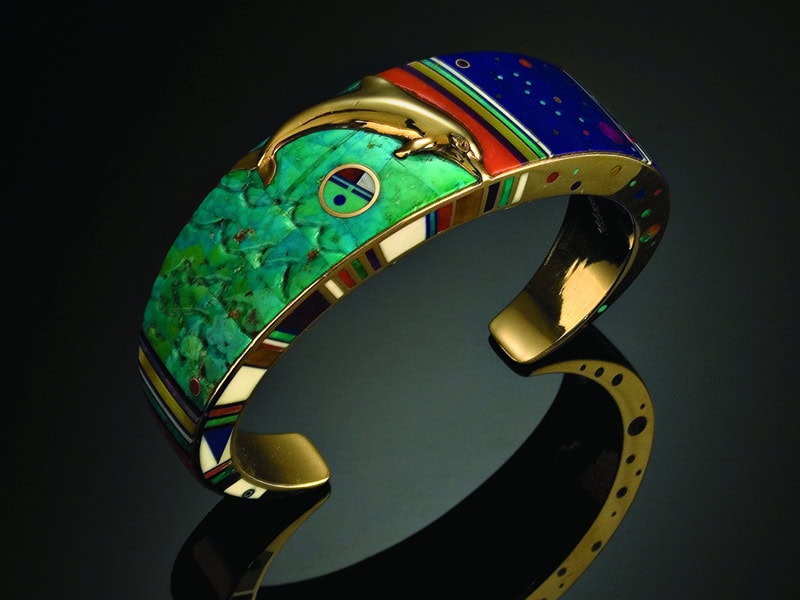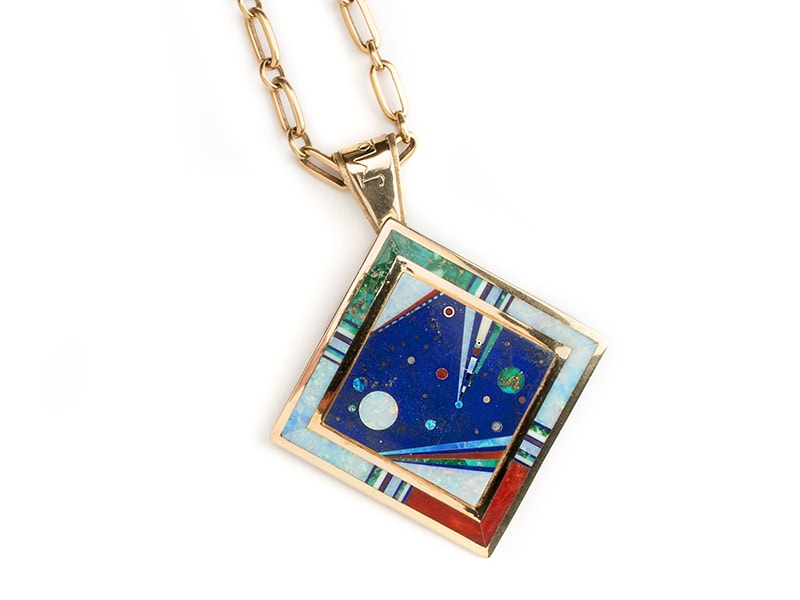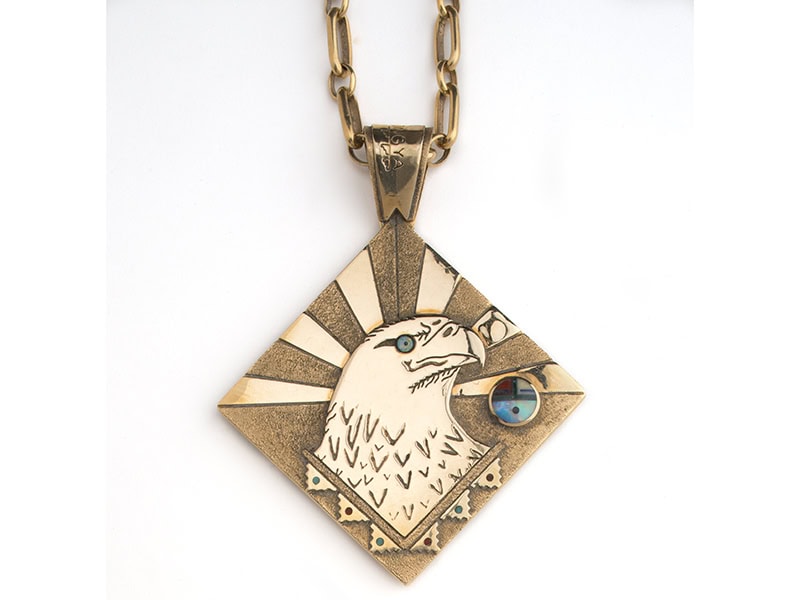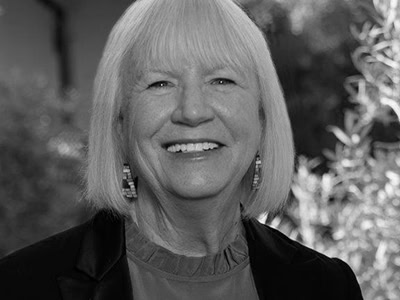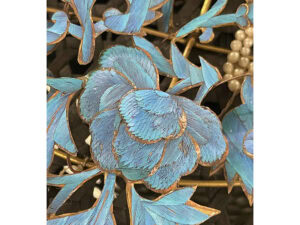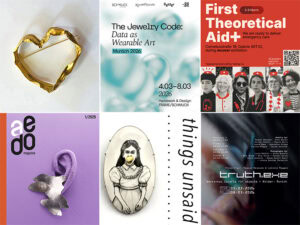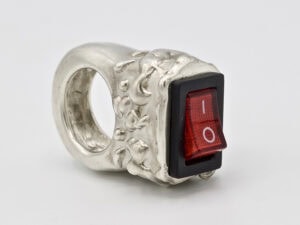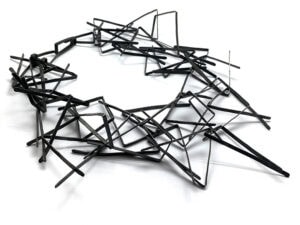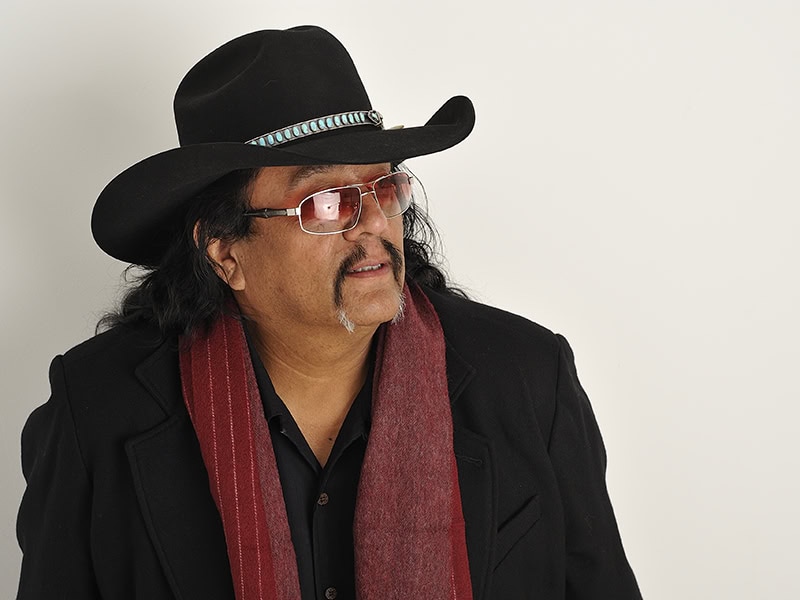
Jeweler Jesse Monongye was known for the technical excellence and beauty of the intricate inlay jewelry he created. He began making jewelry in 1975, having learned some of the basic metalworking skills by observing his father, Preston Monongye, and lapidary skills by watching Lee Yazzie.
Monongye, his brother, and sister were raised by Navajo relatives in the Chuska Mountains near Two Grey Hills, in Arizona. After graduating from Fort Wingate High School, Monongye worked initially as a heavy-equipment operator. He enlisted in the United States Marines in 1972 and was stationed in Vietnam for 18 months.
In 1975, Monongye was reunited with his father, who had become a well-known jeweler. From 1975–1977, Monongye lived and apprenticed with his father at his home and studio in Paradise Valley, AZ. The two collaborated on jewelry during the time, with Preston creating the metalwork and Monongye the stone inlay. Monongye had the opportunity to observe several other talented jewelers whose work he admired, including Charles Loloma, Lee Yazzie, and Dennis Edaakie.
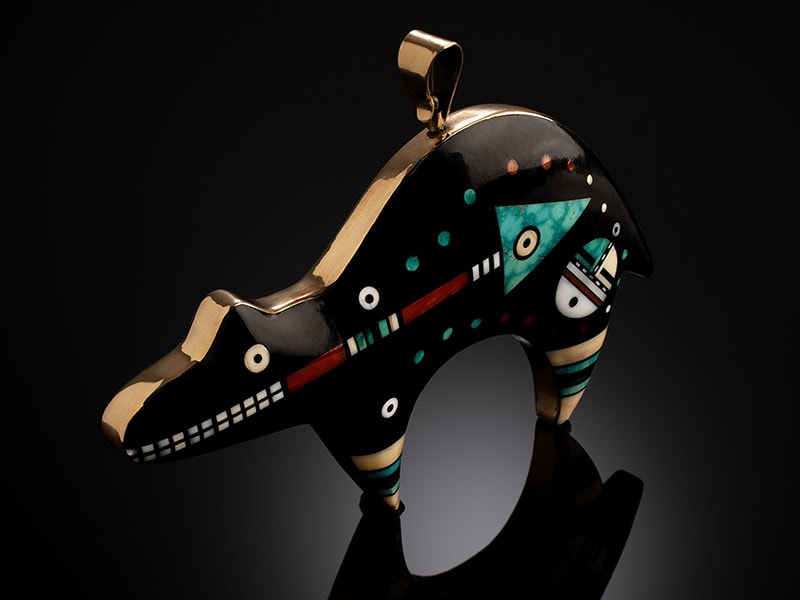
The first jewelry item Monongye made on his own during his apprenticeship with his father was a bear pendant. It won the Best of Jewelry Award at the 1977 Annual Hopi Marketplace at the Museum of Northern Arizona, in Flagstaff. Monongye’s bear would become a signature piece for him and an icon of Southwestern style.
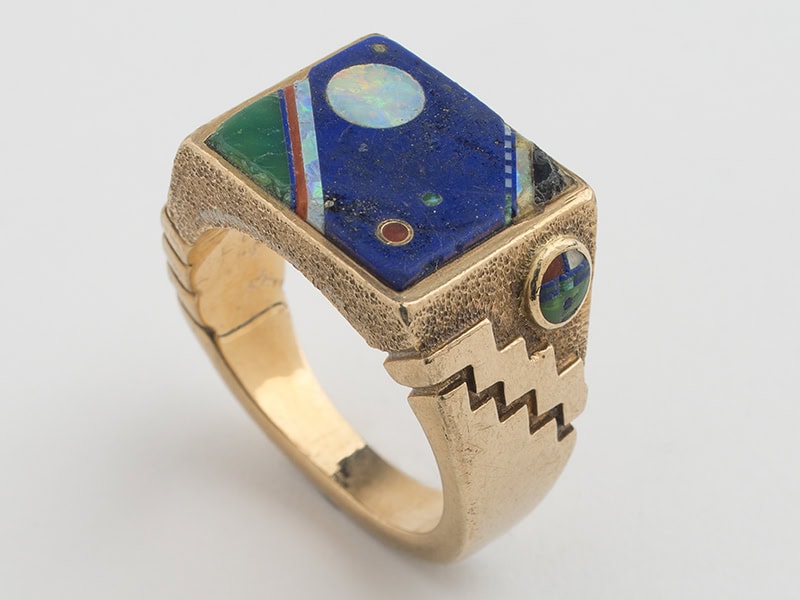
In 1978, Monongye set up his own studio and initially worked with three other jewelers. Within a year, he went into business alone. Success came quickly as he began to win awards at prestigious shows. More recognition for his work quickly followed. Monongye was one of 15 artists featured in the pivotal April 1979 issue of Arizona Highways. The magazine was taking a leading role in featuring contemporary Native artists. Other awards included Best of Show at the Inter-Tribal Indian Ceremonial Arts and Crafts Show in Gallup in 1978 and again in 1991, Best of Division at Santa Fe Market in 1992 and 1994, and Best of Show at the 40th Annual Heard Museum Guild Indian Fair & Market in 1998.
In 2002, Lois Sherr Dubin published the definitive biography Jesse Monongya: Opal Bears and Lapis Skies. The book chronicled Monongye’s career and captured the intricacy of Monongye’s fine inlay and the diversity of his designs. The Heard Museum, in Phoenix, AZ, US, held a one-person exhibition of Monongye’s work in 2010. Monongye was a featured artist in the PBS series Craft in America in 2021.
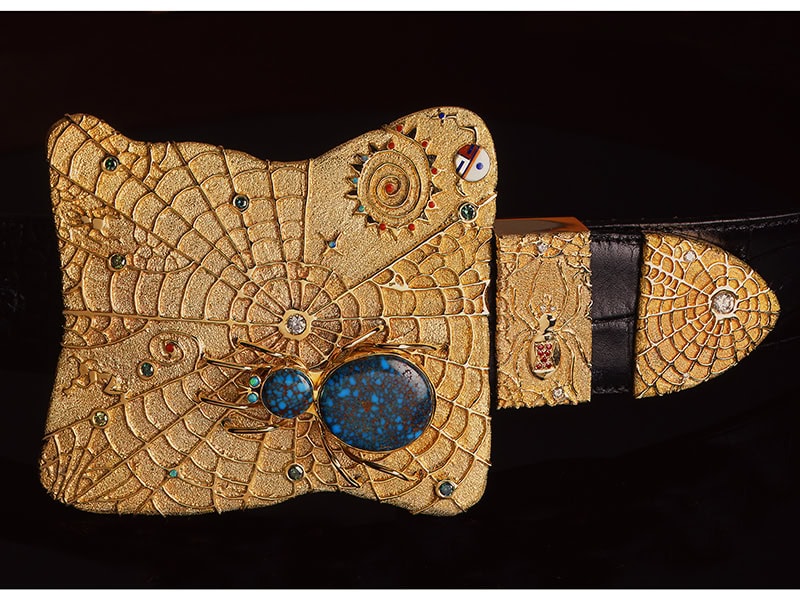
Monongye’s jewelry depictions of Monument Valley with the night sky overhead are breathtaking. Lapis lazuli skies hold big opal harvest moons, comets in multi-colored stones flash across the skies, and yucca grow below. Set in buckles, these have the exquisite appearance of miniature paintings framed in gold. A necklace Monongye made for a Barbie doll collector illustrated his attention to detail as well as his sense of whimsy. He carved small high-heeled shoe-shaped pendants out of a variety of stones that ranged from green gaspéite, blue lapis lazuli, pink and orange coral, and black jet. These and other jewelry creations by Monongye serve as a lasting testament to his creativity and talent.
We welcome your comments on our publishing, and will publish letters that engage with our articles in a thoughtful and polite manner. Please submit letters to the editor electronically; do so here.
© 2024 Art Jewelry Forum. All rights reserved. Content may not be reproduced in whole or in part without permission. For reprint permission, contact info (at) artjewelryforum (dot) org

